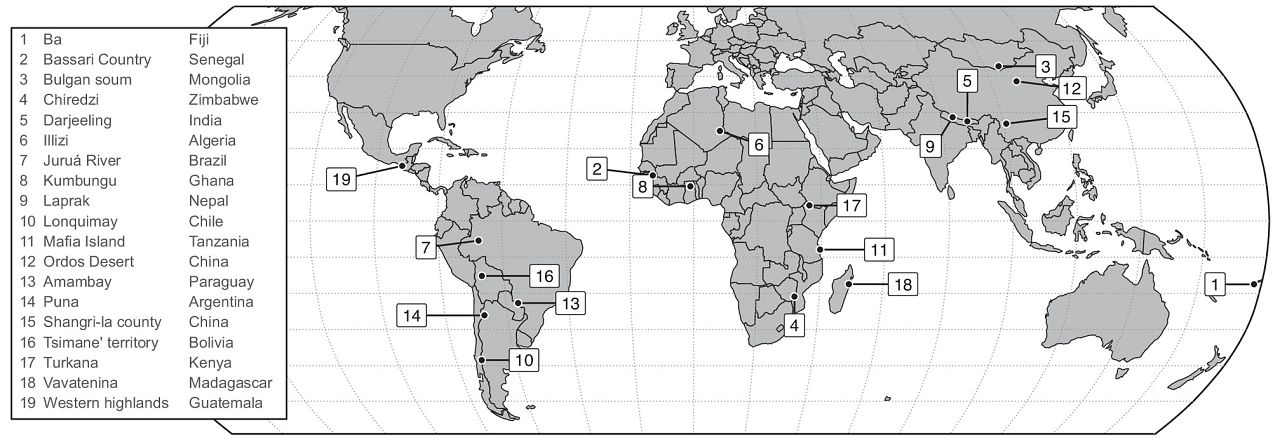A new report challenges the view that only people in rich societies can be happy.
Many people in small societies across the world are very happy with their lives despite having very little income, according to a new study.
Even though previous research, including the World Happiness Report, suggest that economic growth (essentially more money) is a fail-safe way of increasing the well-being of societies, the Institute of Environmental Science and Technology of the Universitat Autònoma de Barcelona (ICTA-UAB) teamed up with McGill University in Canada to challenge this view.
The researchers studied small-scale societies, including Indigenous peoples, saying that previous studies neglected these and gained distorted results having focused only on the responses of citizens in industrialised societies.
In the societies examined, the exchange of money plays a minimal role in everyday life and livelihoods depend directly on nature.
Analysing the results from a survey of 2,966 members of Indigenous Peoples and local communities among 19 globally distributed sites, only 64% of surveyed households had any cash income.
The research states that "high average levels of life satisfaction, comparable to those of wealthy countries, are reported for numerous populations that have very low monetary incomes."
According to the findings, four sites out of the 19 have a very high average life satisfaction (>8). The average across the 19 surveyed small-scale societies is 6.8 out of 10, even though most of the sites have an income which is estimated to be less than $1,000 (€928) a year per person.
The researchers said in their report that "the consensus today is that the wealth of nations is closely associated with whether residents can live their lives close to their ideal."
They also conclude that if it was so, "achieving high life satisfaction for all humans would presumably require much greater rates of material extraction than at present", sacrificing ecosystems and also noted how the efforts would "likely surpass" planetary boundaries.
Instead, people tend to measure their happiness against yardsticks, like how their life is within this community. If the "village-level characteristics unrelated to monetary wealth" were ideal, individual wealth count is very little, the study found.
Where are people the happiest with very little income?
Among the communities surveyed, most people who said their life satisfaction was at the highest level (10), were Tibetans and other ethnic groups from the largest county in the Diqing Tibetan Autonomous Prefecture (155).
Subsequently, the second and third happiest societies appeared to be the Indigenous Amazonians living near the Juruá River in Brazil (80) - and people in Bulgan soum in Mongolia (63), home to nearly 6,000 Kazakhs and other ethnic groups and 100,000 livestock, respectively.
A large proportion of the IndigenousPai Tavytera people in Paraguay (124) also reported their life satisfaction was very high (8), typical of wealthy Scandinavian countries in other polls.
It is hard not to see the correlation between happiness and living side by side in valleys surrounded by snow-capped mountains or near a rainforest in a tight relationship with nature.
However, if you strongly believe that happiness comes with money (no judgment here!), read more about just how much you need to be happy.












